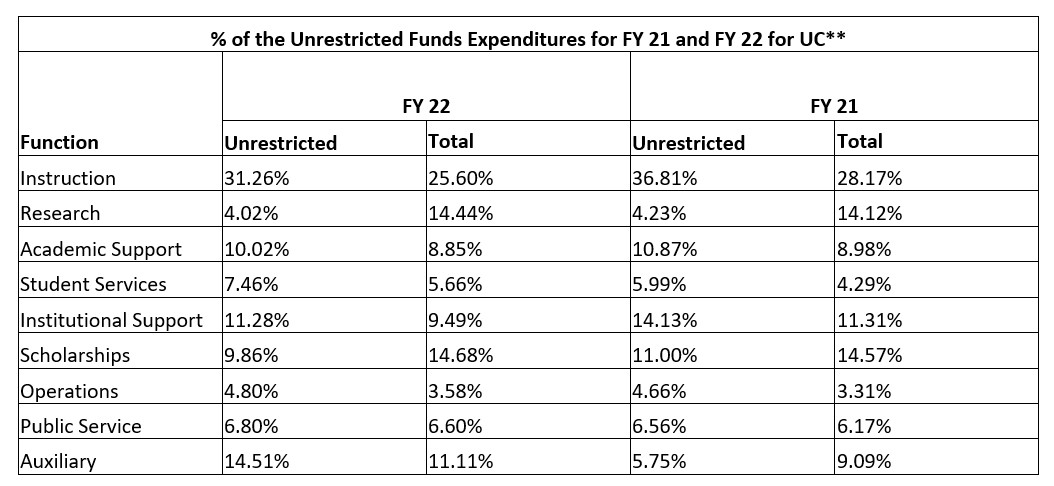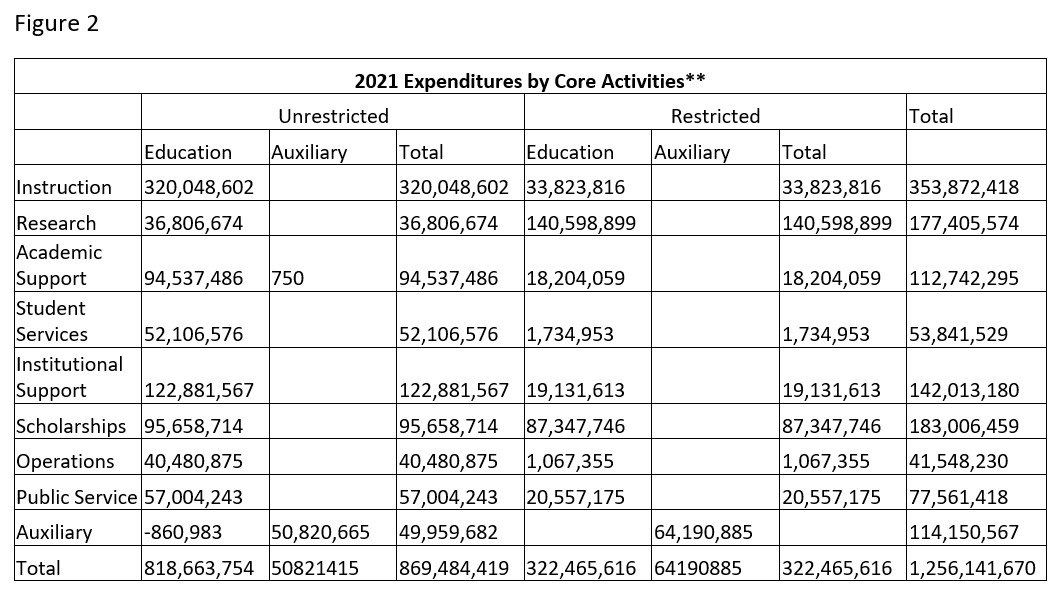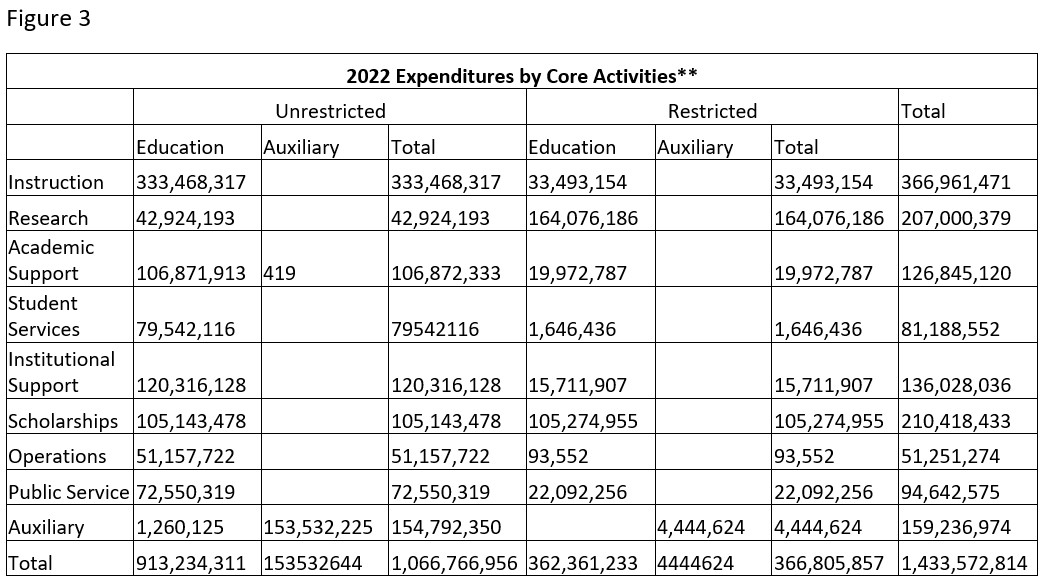In this Issue:
 Ohio Senate Bill 83 (SB 83)
Ohio Senate Bill 83 (SB 83)
The Chapter continues to advocate vigorously against Ohio Senate Bill 83 (SB 83), the anti-faculty, anti-higher education bill (for details about SB 83 click HERE). It would be an understatement to say that many parts of the bill are a huge concern. Despite our efforts, the bill continues to move forward. Legislative sources in Columbus seem to think that Sen. Cirino, the sponsor of the legislation, is committed to three parts of the bill that are likely to be in any substitute bill: 1) post-tenure review; 2) anti-China language; and 3) banning faculty from striking. It is critically important for Faculty to continue to contact their state legislators, communicate, and raise awareness of this issue.
Faculty have asked the Chapter if it is appropriate to use their UC email on matters such as SB 83 and for legislative advocacy in general. It is the Chapter’s position that Faculty use of UC email for legislative advocacy is appropriate. It is critically important for Faculty to be able to communicate on critical issues in their role as Faculty, especially in areas of their expertise. The AAUP National report on Academic Freedom and Electronic Communications 9adopted in 2013 and available online here https://www.aaup.org/file/Academic%20Freedom%20%26%20Electronic%20Communications.pdf states:
Some states have also barred public employees, including faculty members at public colleges and universities, from employing university electronic-communications resources—for example, a university e-mail account—for political campaigning. In such states, public colleges and universities must clearly define what constitutes such activity. While a public employee may reasonably be barred, for instance, from using a university website to run for public office or raise funds for a campaign, policies that discourage or prohibit, either explicitly or through imprecise or ill-defined language, faculty members, staff members, and students from expressing political preferences clearly violate fundamental principles of academic freedom and free expression. [emphasis added]
Note that a part of SB 83 is intended to chill Faculty expression and prohibit Faculty from taking positions on matters of “controversial belief or policy,” such as climate change, electoral politics, immigration policy, marriage, or abortion.
When advocating on these issues there is an appropriate balance and Faculty should be mindful and clearly state that they are speaking for themselves and not the university as whole. The Collective Bargaining Agreement’s section on Academic Freedom states, “Faculty members shall be free in their public utterances or activities to identify their UC affiliation so long as no false impression of University sponsorship or endorsement is created.” Collective Bargaining Agreement (CBA), 2.3. Faculty are always encouraged to familiarize themselves with the CBA and especially the Academic Freedom sections.
The Administration takes a different position on the use of UC email and cites Board of Trustees rule 3361: 10-17-01, which states: “Letters, statements, or other means of communication or support by members of the staff, faculty, or student body on matters of political advocacy or public controversy or concern may not use the university’s name, logos, copyrights, trademarks, or other university resources unless authorized by the board of trustees, or its designee, as set forth in section (A).”
To clearly comport with the spirit of academic freedom and the language in the CBA, the Chapter encourages Faculty to affix a disclaimer to their email template using the following or similar language: “The content and opinions of this email are that of Jane Smith. Nothing contained in this email implies the sponsorship or endorsement of the University of Cincinnati.”
Alternatively, if they are more comfortable, Faculty can communicate with a private email, such as Gmail, etc. If using a private email, Faculty can still identify themselves as UC Faculty, as well as discuss their work, expertise, and opinions as a UC Faculty member, but again should make sure nothing in the email implies the sponsorship or endorsement of the University of Cincinnati.
The campaign against SB 83 will intensify in the coming weeks. Please monitor your email as communications will be forthcoming from the Chapter and the Ohio Conference of the AAUP (OCAAUP). Taking action and communicating with state legislators and other stakeholders will be critical. Be ready. Information and updates will always be available at the OCAAUP’s website.
 The Values Behind UC’s Budget
The Values Behind UC’s Budget
President Biden has been known to say on occasion, “Don’t tell me what you value. Show me your budget and I’ll tell you what you value.” In the January 20, 2023, edition of the Works, “68% vs 51%” article discussed the distribution of the All-Funds Budget on the core academic mission of the university. The All-Funds budget and expenditures includes both restricted and unrestricted funds of the university. Restricted funds are monies donated to the university or received as part of a grant for a designated purpose, and these funds may not be used by the university for other expenses. Unrestricted funds, however, may be used to cover any legal expense incurred by the university and use of these funds is under the discretion of the administration and the board of trustees. This article analyzes the FY 21 and FY 22 All Funds Accounting Schedule to illuminate the administration’s budgetary priorities. Unrestricted funds are the best indicator of the administration’s priorities as this is where the administration has freedom to assign and distribute funds at their discretion. In addition, expenditures show the actual amount attributable to each core function rather than the budget which is the spending plan – not the actual spending.
In FY 21 to FY 22, the Auxiliary* core function was the big winner as this function saw an additional 8.76% (see Figure 1) of unrestricted funds in FY 22. This amounted to an additional $104 million in unrestricted funds directed to Auxiliary functions FY 22 (see figures 2 and 3). Notably, the total increase in Auxiliary spending is only $45 million. In FY 2021, Auxiliary restricted expenditures were $64 million, but in FY 22 the Auxiliary restricted expenditures shrunk to $4.4 million while the unrestricted expenditures increased by $104.8 million. To be fair, in FY 21, UC spent $56.5 million in restricted government funding that was not available in FY 22.
Two-thirds of the increase of total auxiliary expenditures can be attributed to a $30 million increase in athletic spending. When looking at expenditures by department in FY 21 and FY 22, athletic expenditures grew from $42.5 million in FY 21 to $72.4 million in FY 22. The remaining $15 million increase in auxiliary expenses is not as clearly discernible, but most can likely be attributed to campus services. In FY 21, campus services only had $16 million in unrestricted expenditures, but the $56.5 million in restricted government funding was attributed to the category “Controller’s Office Administration”. Together, these expenditures amount to $72.5 million. In FY 22, the “Controller’s Office Administration” had a credit of $80,000, and the campus services total expenditures of $85.6 million. Only $4700 of the $85.6 million was restricted funds.
The changes in distribution of funds to many other core functions were relatively flat. Operations and public services saw modest increases in their unrestricted expenditures which amounted to a 0.14% increase each. Academic support and research, however, saw modest decreases in funding by 0.85% and 0.21% respectively. Student services saw a slightly larger increase in their percentage of unrestricted expenditures by 1.47%
Several core functions saw significant decreases in the percentage of unrestricted funds for FY 22. Instruction says the biggest decrease at 5.55% followed by a 2.85% decrease in Institutional Support. Finally, scholarships saw a 1.14% decrease in unrestricted funds. The unrestricted funds expenditures clearly delineate the values of UC. The shift of funds from core academic functions to auxiliary functions indicates that UC is losing sight of the academic mission. The core academic mission should not be sacrificed for expanding campus services or the pursuit of glory and riches in the Big 12.



* Auxiliary includes athletics, campus services like parking, housing and dining. In theory, auxiliary enterprises should be mostly self-supporting from the fees that they charge for their services.
**Data from the FY 2021 and FY2022 Accounting Funds Schedule
